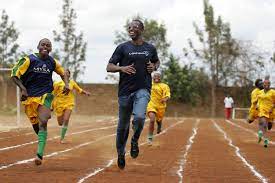Exploring the Evolution of Social Networks in Modern Society
The Impact of Social Networks on Society
Social networks have become an integral part of modern society, transforming the way we communicate, interact, and share information. Platforms such as Facebook, Twitter, Instagram, and LinkedIn have connected people from all corners of the globe, creating a virtual community where ideas, opinions, and experiences are shared.
One of the key impacts of social networks is the way they have revolutionised communication. In the past, communication was limited to face-to-face interactions or written letters. With social networks, people can now connect instantly with friends, family, and even strangers in real-time. This has made it easier to stay in touch with loved ones, collaborate on projects with colleagues across the world, and engage in discussions on a global scale.
Social networks have also played a significant role in shaping public opinion and influencing societal trends. News spreads rapidly on platforms like Twitter and Facebook, often reaching millions of users within seconds. This has given rise to citizen journalism, where individuals can report news events as they happen and share their perspectives with a wide audience.
Furthermore, social networks have provided a platform for people to express themselves creatively and build personal brands. Influencers on platforms like Instagram and YouTube have amassed large followings by sharing their talents, expertise, or lifestyle choices. This has created new opportunities for individuals to monetise their online presence and reach a global audience.
However, the impact of social networks is not without its challenges. Issues such as online privacy concerns, cyberbullying, misinformation spread, and addiction to social media have raised questions about the negative effects of excessive use of these platforms. It is essential for users to be mindful of their online behaviour and practice responsible usage of social networks.
In conclusion, social networks have had a profound impact on society by revolutionising communication, shaping public opinion, empowering individuals to express themselves creatively and building personal brands. While there are challenges associated with their use, when used responsibly and ethically, social networks can be powerful tools for connecting people and fostering meaningful relationships in an increasingly digital world.
Five Essential Tips for Navigating Social Networks Safely and Responsibly
- Be mindful of the information you share online to protect your privacy.
- Think before you post to avoid sharing something you might regret later.
- Engage with others respectfully and considerately in online conversations.
- Verify the credibility of information before sharing it to help combat misinformation.
- Take breaks from social media to maintain a healthy balance with offline activities.
Be mindful of the information you share online to protect your privacy.
It is crucial to be mindful of the information you share online to safeguard your privacy and personal data. With the widespread use of social networks, it is easy to overshare details about your life, location, or personal activities without considering the potential consequences. By being cautious about the information you disclose online, you can protect yourself from identity theft, cyberstalking, or other forms of online threats. Remember that once something is posted on the internet, it can be challenging to completely erase it. Therefore, think twice before sharing sensitive information and ensure that your online presence reflects the image you want to portray to the world.
Think before you post to avoid sharing something you might regret later.
It is crucial to exercise caution and deliberation before posting on social networks to prevent sharing content that could potentially lead to regret in the future. Taking a moment to consider the implications of what you are about to post can help avoid situations where inappropriate or harmful content is shared inadvertently. By thinking before you post, you can ensure that your online presence reflects your values and intentions accurately, maintaining a positive digital footprint and fostering healthy interactions within your online community.
Engage with others respectfully and considerately in online conversations.
When participating in online conversations on social networks, it is crucial to engage with others respectfully and considerately. By maintaining a positive and constructive tone in your interactions, you can foster meaningful discussions, build relationships, and contribute to a harmonious online community. Respectful engagement involves listening to others’ perspectives, acknowledging differing opinions, and responding thoughtfully without resorting to hostility or aggression. By practising respectful communication online, you can create a welcoming environment where diverse voices are valued and mutual understanding can be achieved.
Verify the credibility of information before sharing it to help combat misinformation.
It is crucial to verify the credibility of information before sharing it on social networks to combat misinformation effectively. By taking the time to fact-check and confirm the accuracy of the content, we can play a vital role in preventing the spread of false or misleading information. This simple yet important practice helps maintain the integrity of online discourse and ensures that only reliable and trustworthy information is shared within our digital communities.
Take breaks from social media to maintain a healthy balance with offline activities.
Taking breaks from social media is essential to maintain a healthy balance with offline activities. Constantly being connected to social networks can lead to feelings of overwhelm, distraction, and even addiction. By stepping away from social media regularly, individuals can re-engage with the physical world around them, spend quality time with loved ones, pursue hobbies, and focus on self-care. These breaks allow for mental rejuvenation, reduced screen time, and a renewed appreciation for real-life experiences. Striking a balance between online and offline activities is key to overall well-being and ensuring a healthy relationship with technology.




